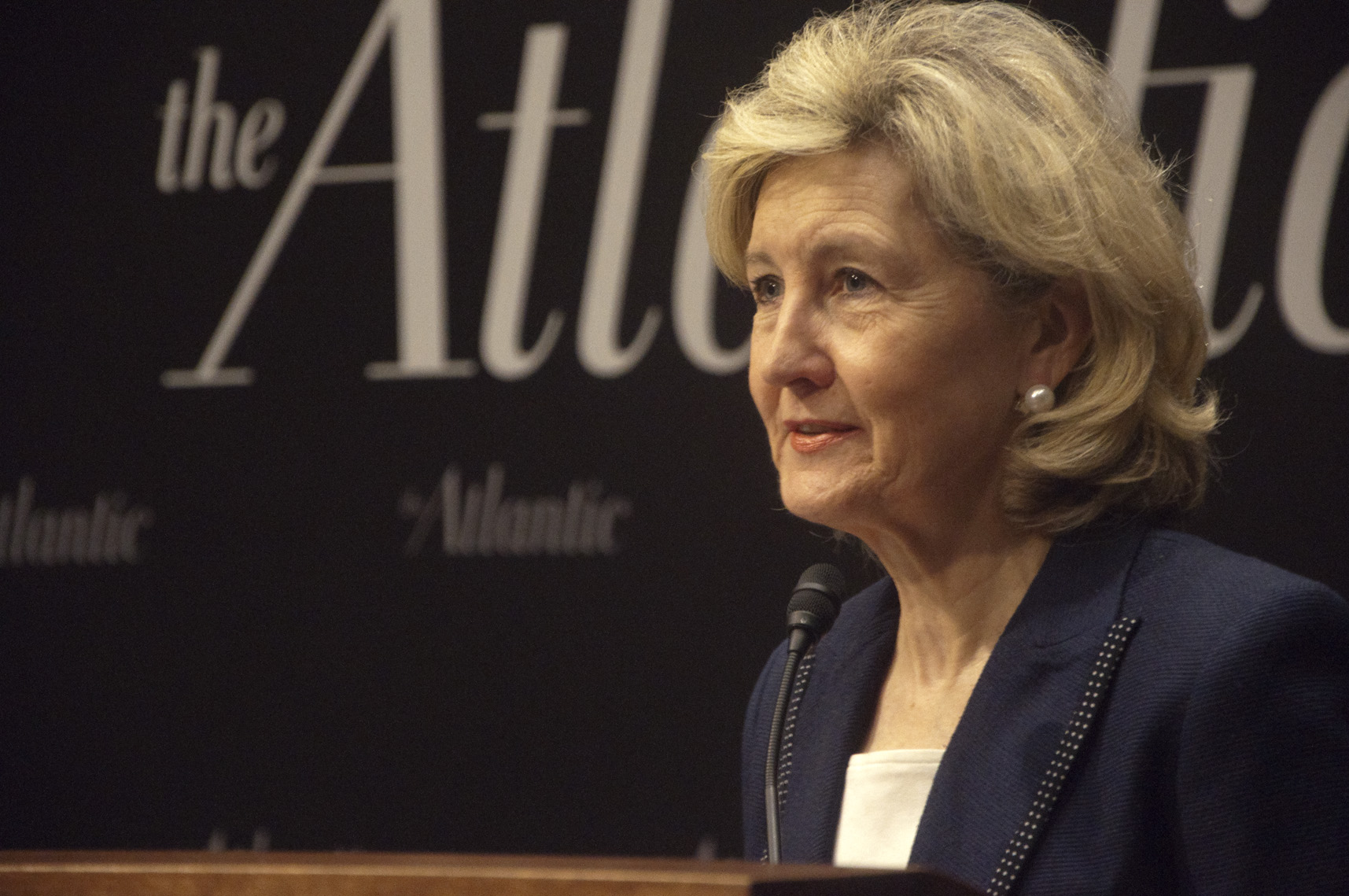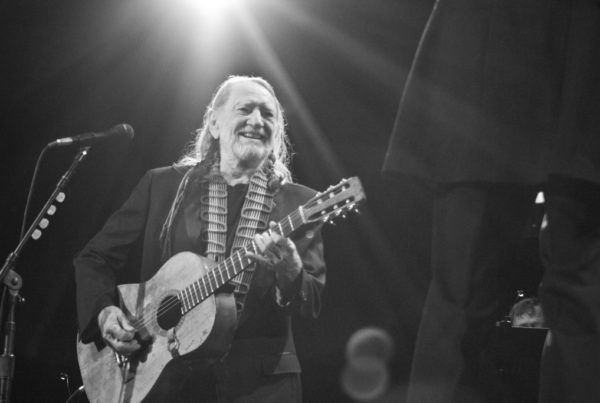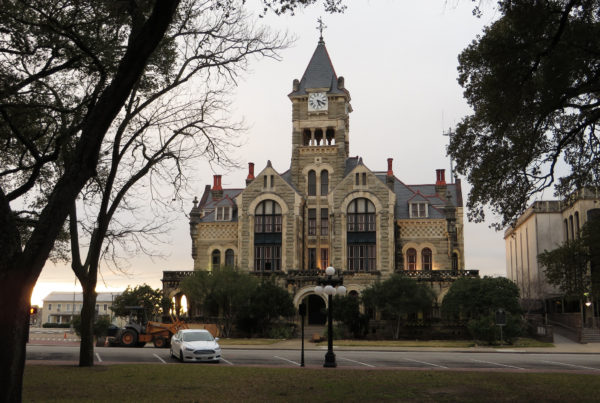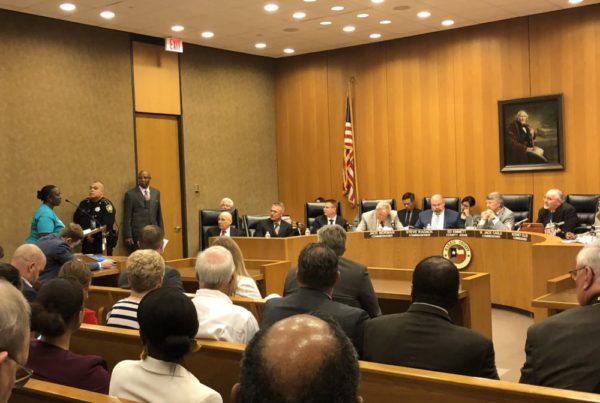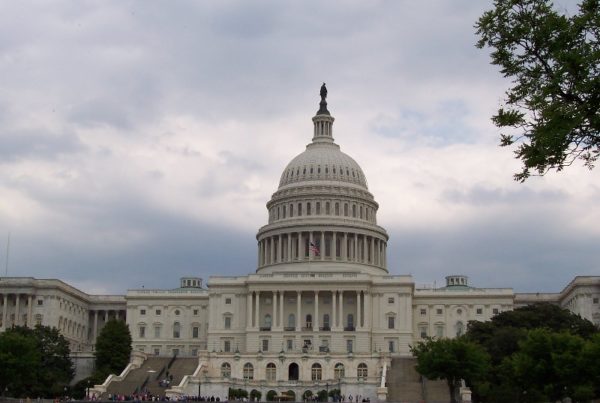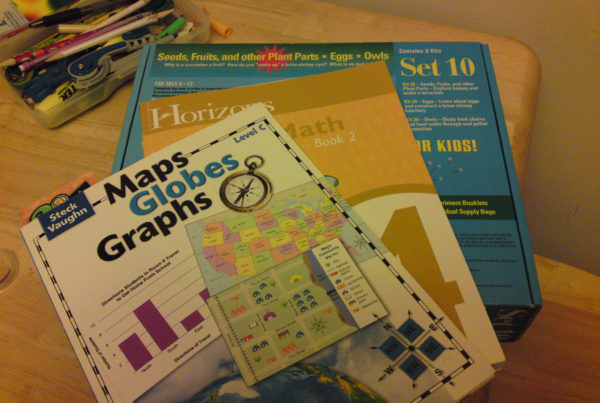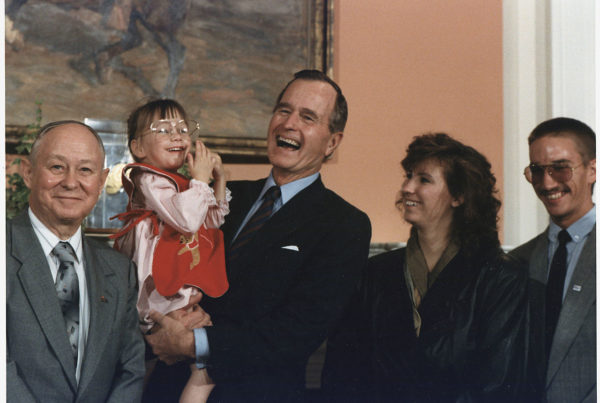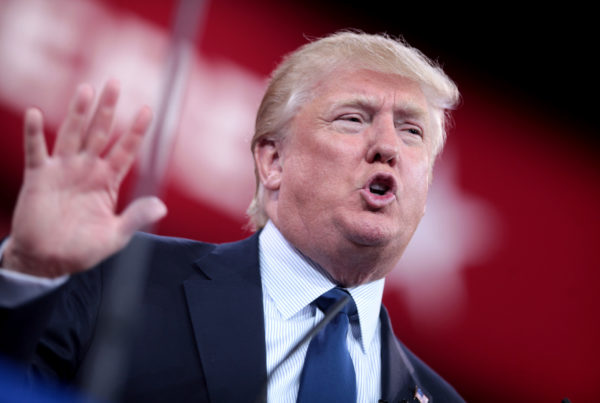Former Texas Senator Kay Bailey Hutchison, now the ambassador to NATO, is representing the U.S. as President Donald Trump tangles with allies in a testy start to this week’s Brussels summit. Aaron Mehta, senior correspondent for Defense News, says that, like Trump, Hutchison is concerned that European countries and Canada are not spending enough on defense.
“The first thing she mentioned, and mentioned repeatedly, is the question of burden sharing,” Mehta says. “There is a target set in 2010 by NATO to be spending two percent of your GDP on defense issues.”
Though the deadline is set for 2024, many countries aren’t on track to meet that goal. That’s why Trump has complaints about the alliance.
Mehta says that Hutchison’s job is to be “the ambassador and the diplomat to the NATO countries who are maybe a little concerned about the tone that President Trump has set. So her message is, ‘The U.S. is committed to NATO. We will always be committed to NATO. You are our friends and our closest allies but we need you to start meeting us halfway.”
Trump, meanwhile, has been a more forceful critic.
“He was very aggressive toward Germany in particular over an energy deal they’re working out with Russia at the moment,” Mehta says. “I believe the phrase was he said Germany is completely controlled by Russia, which is interesting. If you talk to most analysts, they would argue Germany is one of the most anti-Russian European powers, particularly with Angela Merkel there.”
Mehta says NATO countries hoped the summit would be a productive opportunity to get America in the room with its allies – but that’s rapidly deteriorating.
“I don’t think there’s much hope of that,” he says, “after about the first five minutes of the summit.”
Mehta says the alliance isn’t likely to collapse, but the summit could signal that NATO’s purpose is changing.
“It’s a very strange moment for NATO,” Mehta says. “The U.S. has always been, by design, the lead in NATO. The head military official in NATO is the head of U.S. military in Europe. It is essentially an American-run alliance. The exchange of that traditionally has always been that if there was a war with Russia, it would be fought in Europe and not in America. That was the kind of core idea of America supporting and building the NATO alliance.”
But now, Mehta says, NATO countries are asking themselves whether they can rely on America to uphold the alliance, even though, as a politician with a traditional Republican record, Hutchison supports NATO conceptually.
“I think both professionally and personally,” he says, “she would like to see some of these countries step up more than they have been.”
Written by Jen Rice.


